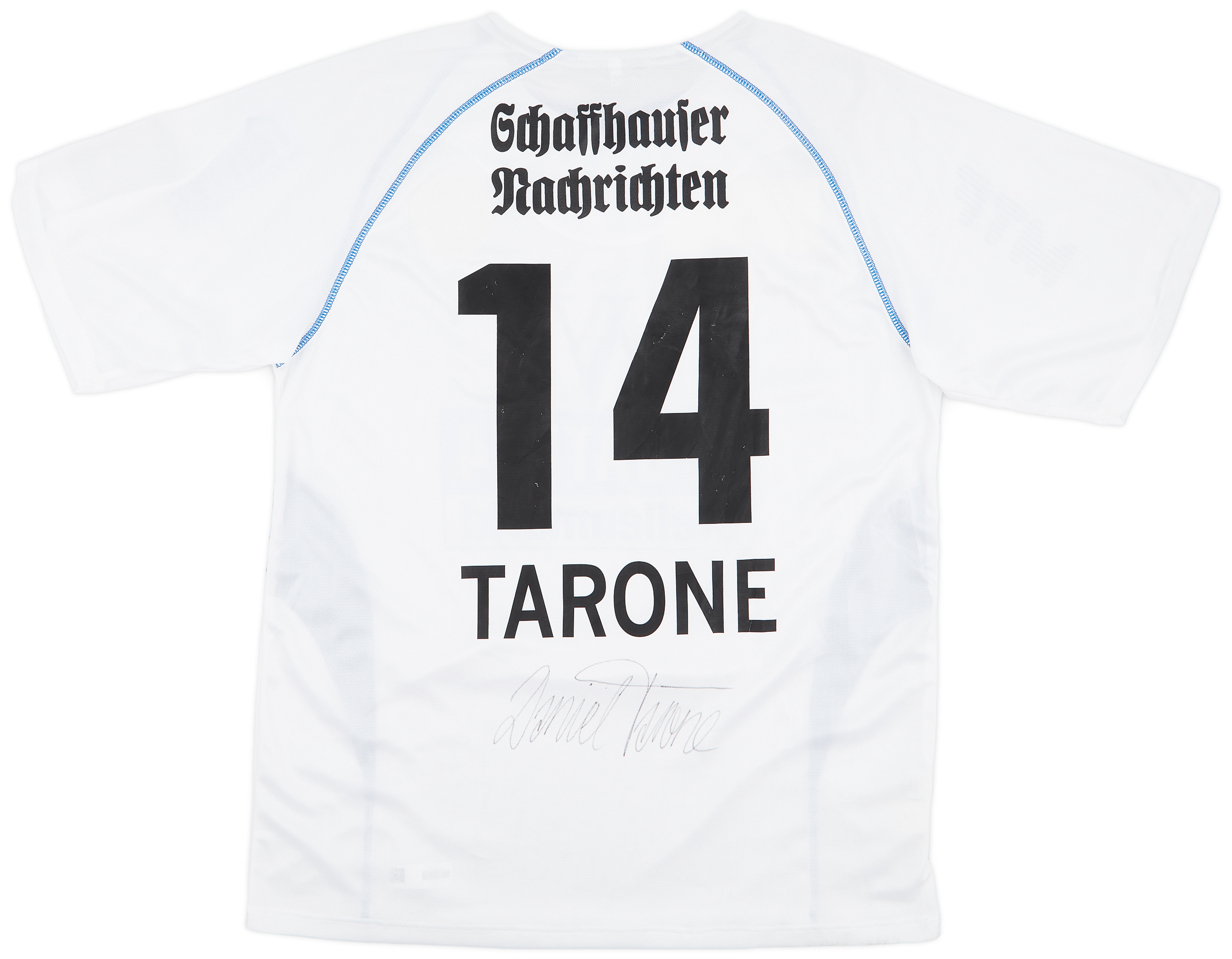Schaffhausen
Introduction Football Club Schaffhausen, based in the picturesque city of Schaffhausen, Switzerland, holds a unique place in Swiss football history. Established in 1896, the club embodies a deep-seated football culture that spans over a century. Known for its tenacity and local pride, Schaffhausen has cultivated a loyal fanbase and fostered community spirit through its vibrant […]
2005-06 FC Schaffhausen Signed Home Shirt Tarone #14 - 7/10 - (M/L)
53.99£ - ca: €64
2015-16 Schaffhausen Home Shirt - 6/10 - (XL)
47.99£ - ca: €57
2015-16 FC Schaffhausen GK Shirt - 9/10 - (M)
47.99£ - ca: €57
Introduction
Football Club Schaffhausen, based in the picturesque city of Schaffhausen, Switzerland, holds a unique place in Swiss football history. Established in 1896, the club embodies a deep-seated football culture that spans over a century. Known for its tenacity and local pride, Schaffhausen has cultivated a loyal fanbase and fostered community spirit through its vibrant sporting activities. The club’s renowned colors of yellow and black reflect its rich heritage, making it a symbol of local identity in the competitive Swiss football landscape.
Club History
Founded on May 1, 1896, FC Schaffhausen is one of the oldest football clubs in Switzerland. The club was initially established by a group of young football enthusiasts inspired by the growing popularity of the sport across Europe. Over the years, Schaffhausen has witnessed various transformations, including its participation in the early iterations of the Swiss football league system. One of the club’s key historical moments came in 1944 when it was promoted to the top tier of Swiss football, highlighting its competitive spirit and ambition. In the following decades, Schaffhausen battled through both triumphs and challenges, illustrating the undying determination of its players and management.
Achievements
FC Schaffhausen has enjoyed numerous achievements over its long history, particularly in domestic competitions. The club notably secured its first major trophy in 1953 by winning the Swiss Cup, a feat that established its reputation in Swiss football. In the years that followed, the club continued to perform at a high level, claiming the Swiss Challenge League title in the 1969-70 season. Schaffhausen’s promotion to the Swiss Super League marked a significant milestone for the club and further enhanced its visibility in Swiss football.
While the club has not consistently held a place in the top division, FC Schaffhausen has made several memorable runs in the Swiss Cup, often taking on and challenging teams from the top tier. The club’s resilience in competitions reflects its unwavering commitment to growth and development, making it a perennial contender in Swiss domestic football.
Significant Players and Matches
Throughout its history, FC Schaffhausen has been home to several notable players who have greatly contributed to the club’s success. One of the legends of the club is Ueli Stielike, a talented midfielder who later became a Swiss national team player and enjoyed an impressive career in various European leagues. His ability to control the midfield was crucial during key matches in the 1970s.
Another significant figure in recent years is striker Majeed Waris, who played for the club in the early 2010s. Waris was known for his swift pace and goal-scoring prowess, making him a fan favorite during his tenure. Landmark matches, such as the dramatic 3-2 victory against FC Basel in the Swiss Cup in 2006, are still remembered fondly by fans. This match exemplified the club’s ability to pull off remarkable upsets against much stronger opponents.
Cultural Impact
FC Schaffhausen extends beyond the football pitch; it plays a crucial role in shaping local culture and community identity. The club has nurtured a passionate fanbase that comprises diverse demographics, uniting people through a shared love for football. Matchdays at Espenmoos Stadium are not just about the game itself; they are a gathering point for fans, families, and friends — a celebration of local pride.
Through various community initiatives, FC Schaffhausen has engaged with local schools and youth programs, inspiring the next generation of footballers. These efforts have solidified its status as a community club, aiming not only for sporting success but also for fostering social bonds. The club’s outreach programs often involve collaboration with local charities, demonstrating its commitment to making a positive impact within Schaffhausen.
Conclusion
In summary, FC Schaffhausen stands as a beacon of Swiss football heritage, celebrated for its rich history, remarkable achievements, and profound local impact. The club has experienced its share of triumphs and tribulations, yet its spirit remains unbroken. As Schaffhausen continues to inspire and engage with supporters, it not only contributes to the footballing tapestry of Switzerland but also nurtures a vibrant community around the beautiful game. The journey of FC Schaffhausen is a story of resilience, determination, and pride — a club that has left an indelible mark on the landscape of Swiss football.


